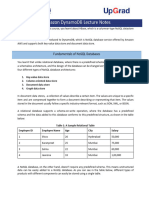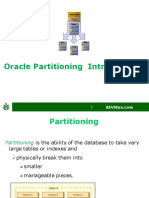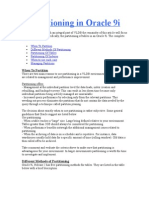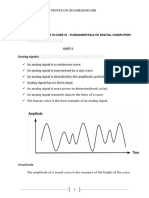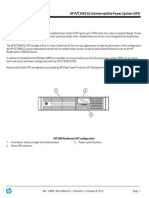0% found this document useful (0 votes)
114 views3 pagesDynamo DB Cheat Sheet: Partitions - 10% Rule
The document provides tips for structuring data in DynamoDB. It recommends:
1) Using partition keys to distribute data across partitions, keeping each partition below 10% of the total data to avoid throttling.
2) Employing range keys to enable querying on ranges of values rather than exact matches only.
3) Creating compound sort keys that concatenate multiple attributes to enable hierarchical grouping and querying of related data.
4) Storing multiple data types for a single entity in one table using composite keys that identify the data type and item.
Uploaded by
Miguel Lorenzo SingianCopyright
© © All Rights Reserved
We take content rights seriously. If you suspect this is your content, claim it here.
Available Formats
Download as PDF, TXT or read online on Scribd
0% found this document useful (0 votes)
114 views3 pagesDynamo DB Cheat Sheet: Partitions - 10% Rule
The document provides tips for structuring data in DynamoDB. It recommends:
1) Using partition keys to distribute data across partitions, keeping each partition below 10% of the total data to avoid throttling.
2) Employing range keys to enable querying on ranges of values rather than exact matches only.
3) Creating compound sort keys that concatenate multiple attributes to enable hierarchical grouping and querying of related data.
4) Storing multiple data types for a single entity in one table using composite keys that identify the data type and item.
Uploaded by
Miguel Lorenzo SingianCopyright
© © All Rights Reserved
We take content rights seriously. If you suspect this is your content, claim it here.
Available Formats
Download as PDF, TXT or read online on Scribd
/ 3












